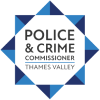Modern Slavery
What is modern slavery?
Slavery still exists in one form or another in every country in the world, including the UK. From women forced into prostitution, children and adults forced to work in agriculture, domestic work, or factories and sweatshops producing goods for global supply chains, entire families forced to work for nothing to pay off generational debts; or girls forced to marry older men, this illegal practice still blights the contemporary world.
Modern Slavery is a global problem that transcends age, gender and ethnicities. It is important that we bring this hidden crime into the open.
There are many different characteristics that distinguish slavery from other human rights violations, however only one needs to be present for slavery to exist. Someone is in slavery if they are:
- forced to work - through mental or physical threat;
- owned or controlled by an 'employer', usually through mental or physical abuse or the threat of abuse;
- dehumanised, treated as a commodity or bought and sold as 'property';
- physically constrained or has restrictions placed on his/her freedom of movement.
Contemporary slavery takes various forms and affects people of all ages, gender and races. There are no typical victims of slavery – victims can be men, women and children of all ages and cut across the population but it mostly affects the vulnerable, minority or socially excluded groups.
More information on Modern Slavery can be found on the Modern Slavery Helpline website or you can download the Home Office Modern Slavery Awareness and Victim Identification guidance.
Child Trafficking
Young people (under 18) moved either internationally or domestically so they can be exploited.
Debt Bondage
Victims are forced to work to pay off debts that realistically they never will be able to. Low wages and increased debts mean that they will likely never pay off the loan and that debt may be passed down to their children.
Forced Labour
Victims are forced to work against their will, often working very long hours for little or no pay in dire conditions. Forced labour can happen in many sectors of our economy from construction to agriculture, manufacturing and fashion and in services like nail bars, car washes or cleaners.
Sexual Exploitation
Victims are forced to perform non-consensual sexual acts against their will, such as prostitution, escort work and pornography. Whilst women and children make up the majority of victims, men can also be affected. Adults are coerced often under the threat of force, or another penalty.
Criminal Exploitation
Often controlled and maltreated, victims are forced into crimes such as cannabis cultivation or pick pocketing against their will.
Domestic Servitude
Victims are forced to carry out housework and domestic chores in private households with little or no pay, restricted movement, very limited or no free time and minimal privacy often sleeping where they work.
Signs of slavery are often hidden, making it hard to recognise victims around us. Here is a list of some common signs which you can be aware of:
Physical appearance
Victims may show signs of physical or psychological abuse; looking malnourished, unkempt or appear withdrawn.
Isolation
Victims may seem under the control or influence of others, rarely interact or be allowed to travel on their own, or appear unfamiliar with their neighbourhood or where they work.
Poor living conditions
Victims may be living in dirty, cramped or overcrowded accommodation, and/or living and working at the same address.
Few or no personal effects
Victims may have no identification documents, have few personal possessions and wear the same clothes day in day out. What clothes they do wear may not be suitable for their work.
Restricted freedom of movement
Victims have little opportunity to move freely and may have had their passports taken away.
Unusual travel times
They may be dropped off / collected for work on a regular basis either very early or late at night.
Reluctant to seek help
Victims may avoid eye contact, appear frightened or hesitant to talk to strangers and fear law enforcers for many reasons, such as not knowing who to trust or where to get help, fear of deportation and fear of violence to them or their family.
If you suspect slavery is happening:
Call the police on 101 or 999 in an emergency
You can report to the Modern Slavery Helpline on 0800 0121 700 or using their online form.
If you think you are, or have been, a victim of modern slavery there are organisations that can help including our Adults Victims Service which provides emotional support, advocacy, and practical help. If you feel that you need this support please contact Victims First by visiting Get Support Now.

